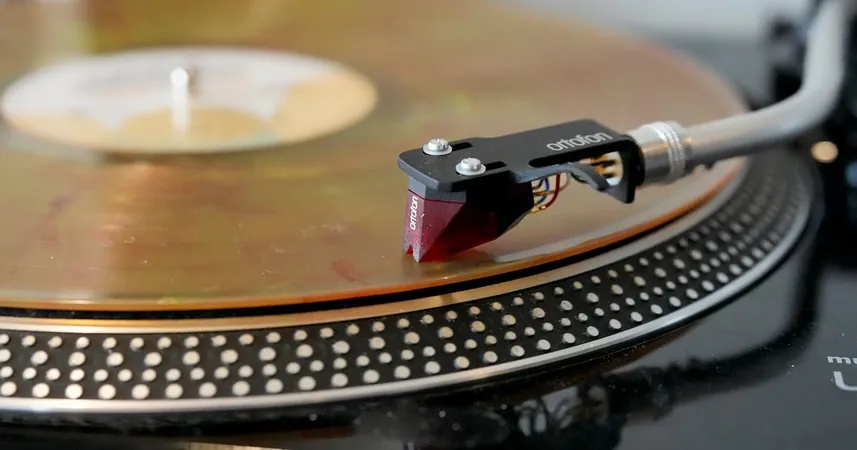
Why Some People Just Don't Enjoy Music: The Surprising Science Behind It
2025-08-10
Author: Liam
We've all faced the frustration of trying to share our favorite music with a friend, only to have them recoil in distaste. Whether it’s a beloved album or an underground artist, sometimes it just doesn't resonate. But what if you met someone who simply can’t appreciate music at all?
Introducing a mind-boggling phenomenon: specific musical anhedonia (SAR). Researchers from McGill University and the University of Barcelona have revealed that this rare neurological condition might explain why certain individuals find no joy in music whatsoever. While most of us revel in the sounds that ignite our emotions and sway our hips, SAR sufferers experience music as mere noise.
Peering Into the Brain's Mysteries
SAR is characterized by an impaired ability to derive pleasure from music, even when one can hear it perfectly fine. Intriguingly, scientists believe environmental factors and brain injuries could trigger this condition, but it has also emerged in individuals with no prior neurological issues. Shockingly, estimates suggest that three to five percent of the population could be living with SAR.
Unlocking the Music Connection
To study SAR, researchers deployed the Barcelona Music Reward Questionnaire (BMRQ) which assessed how music impacts emotions, mood regulation, social bonding, and even the urge to let loose on the dance floor. Coupling these insights with brain imaging, they found that SAR stems from diminished activity between the brain’s pleasure centers and sound-processing regions. It’s not that the reward centers are malfunctioning; it’s about how they interact with other critical areas.
As study co-author Ernest Mas-Herrero explains, “If the reward circuit is not functioning well, you experience diminished pleasure from all kinds of rewards.” This revelation suggests that music may follow its own unique neurological pathways, separate from other sources of joy.
Implications Beyond Music
In a striking 2016 study, patients with SAR showed typical brain responses to winning a game of chance, but music left them altogether unresponsive. This disconnect hints that distinct pleasure experiences have their own neural routes, potentially isolating zones of enjoyment that could be applied to other conditions like addiction and eating disorders.
As researcher Josep Marco-Pallarés states, understanding how different pathways respond—or fail to respond—to musical stimuli could pave the way for exploring other disorders, such as food-related anhedonia. Who knew that delving into why some people can’t appreciate the melody might unlock answers to larger questions about human pleasure? Could the keys to joy lie within our very brains, just waiting to be discovered?









 Brasil (PT)
Brasil (PT)
 Canada (EN)
Canada (EN)
 Chile (ES)
Chile (ES)
 Česko (CS)
Česko (CS)
 대한민국 (KO)
대한민국 (KO)
 España (ES)
España (ES)
 France (FR)
France (FR)
 Hong Kong (EN)
Hong Kong (EN)
 Italia (IT)
Italia (IT)
 日本 (JA)
日本 (JA)
 Magyarország (HU)
Magyarország (HU)
 Norge (NO)
Norge (NO)
 Polska (PL)
Polska (PL)
 Schweiz (DE)
Schweiz (DE)
 Singapore (EN)
Singapore (EN)
 Sverige (SV)
Sverige (SV)
 Suomi (FI)
Suomi (FI)
 Türkiye (TR)
Türkiye (TR)
 الإمارات العربية المتحدة (AR)
الإمارات العربية المتحدة (AR)